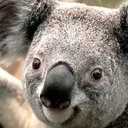Tea consumption reduces the risk of de novo myelodysplastic syndromes.
Kľúčové slová
Abstrakt
Epidemiologic data suggest that green tea consumption may protect against certain cancers, but no previous study has examined myelodysplastic syndromes (MDS). A hospital-based case-control study was conducted in China in 2012-2013 to investigate the association between tea intake and the risk of de novo MDS in adults. The study included 208 cases aged 19-85 years with MDS and 208 controls individually matched to the cases by gender, 5-year age group and residential locality. Odds ratios (ORs) were estimated using conditional logistic regression. Compared with non-tea drinkers, the adjusted ORs (95% confidence intervals) for all MDS combined were 0.39 (0.20-0.74), 0.45 (0.25-0.79), and 0.40 (0.21-0.77) for those who consumed tea >20 years, ≥2 cups daily, and dried tealeaves ≥750g per annum, respectively. Significant dose-response trends were observed across all the measures. The inverse association existed in both genders, in the refractory anemia with excessive blasts subtype, in cytogenetic 'good' and 'intermediated/poor' prognosis groups, and in the International Prognostic Scoring System lower and higher risk groups, but not in the refractory cytopenia with multilineage dysplasia subtype. The study suggests that regular tea consumption reduces the risk of de novo MDS in the Chinese population.




